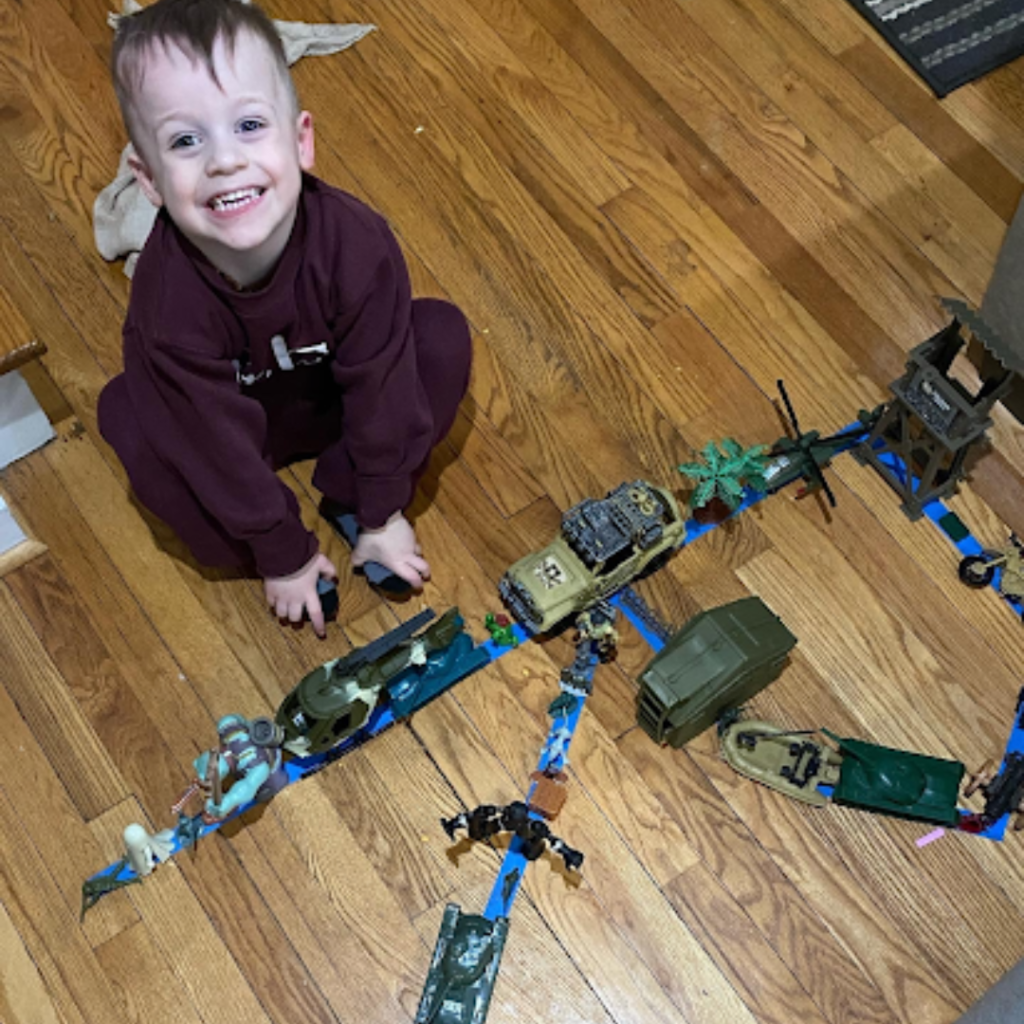Welcome to Coach’s Corner
Coach’s Corner is a DIEEC blog dedicated to providing fresh ideas for your practice. Meghan Julia Pallante is our featured blogger and provides new content on a monthly basis.
Meghan is a quality improvement specialist and has been with DIEEC for over ten years. She holds a master’s degree in Human Development and Family Studies from the University of Delaware.

Browse some of our recent topics
Literacy in the Early Childhood Environment
Part 1 of 3 in our 2025 Literacy Series
April 2025
When considering literacy, like any topic in early childhood education, we want to make sure we are planning playful and engaging activities. Our understanding of language and literacy in early childhood education has evolved quite a bit. Educators who have been working in the field for many years may remember a time when early childhood curricula encouraged flashcards and word walls for preschoolers. Current research suggests that children learn best through hands-on, play-based activities (Moore, D., Edwards, S., Cutter-Mackenzie, A., Boyd, W., 2014). We want to make learning enjoyable for our youngest children and our educators!
Literacy-rich Environments
Unsure of where to start when planning for literacy in your program? Begin with the environment! Incorporate language and literacy materials in all areas of your space. Children are more likely to be interested in these materials if they are embedded in different play scenarios.
- Dramatic play– This is an easy area to begin adding materials!
- Pads of paper and pencils can be used to write down orders in a restaurant.
- A clipboard with some paper can be a doctor’s chart.
- Whiteboards and dry-erase markers let children make their own signs. This is also a great way to cut down on paper waste!
- Print materials like newspapers/magazines, coupons, menus, envelopes, nametags, and receipts become realistic dramatic play props.
- Block area– The block area can provide lots of opportunities for literacy materials.
- Books about different architectural structures provide building inspiration.
- Writing materials encourage children to make signs, labels, or to draw out their creations before building them.
- Wooden letter blocks encourage letter recognition or simple spelling. For toddlers and infants, consider adding soft or rubber letter blocks.
- Other areas:
- Do you have puzzles available as a fine motor activity? Consider adding alphabet puzzles! For infants and toddlers, be sure the puzzles have knobs on the pieces.
- Don’t forget the book nook! A dedicated space where young children can easily access books is essential in every early childhood space.
- Classroom display ideas:
- Post each child’s picture on the wall, with their name underneath.
- Posters that have pictures and words describing the pictures are a great way to develop children’s understanding that the words have meaning. A great example would be a feelings poster with faces expressing different emotions, with the words underneath.
- As children begin to explore writing, add some of their writing samples to your classroom display.
Quick tip for a fun literacy activity!
Use painter’s tape to make giant letters on the floor. The children can drive toy cars around the letters or line up objects around it. Toddlers and preschoolers will enjoy this activity.

References:
Moore, D., Edwards, S., Cutter-Mackenzie, A., Boyd, W. (2014). Play-Based Learning in Early Childhood Education. In: Young Children’s Play and Environmental Education in Early Childhood Education. SpringerBriefs in Education. Springer, Cham. https://doi.org/10.1007/978-3-319-03740-0_2
Resources
Promoting Preschooler’s Emergent Writing
DIEEC Microlearning: How to Read a Book to Young Children


